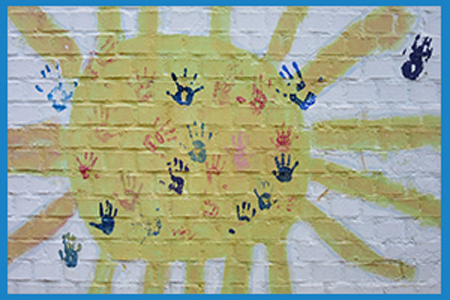5 Things Which Motivate Children to Write
It’s an important question.
How can we motivate children to be interested in and excited about writing?
Learning new things has to be appealing. We are far more receptive to new ideas. It makes it easier to absorb and process information.
We should ask ourselves the following questions when teaching any part of the writing process to children...
1. Does It Start From What They Know?
Relating new learning to what children already know helps them to make sense of new concepts.
Children need opportunities to talk about themselves and to be encouraged to share their experiences with others.
This does not always come easily to some children.
They may be shy or reluctant, unable to speak clearly in sentences. They may lack a range of experiences to talk about. But this should not hinder their development.
We simply have to provide the experiences which enable all children to make connections and grow in confidence and understanding.
Understanding how children learn takes insight and a great deal of understanding. Tremendous potential can be harvested – allowing children opportunities to talk about what they know, can do and have done.
2. Are They Playing With Language?
Children need to:
- get involved
- be creative
- try new things
- try again.
This is how they learn.
It follows that children need to:
- see what a sentence looks like and how it is created
- physically move words and images around
- hear how things sound when they say it out loud
- hear how things can be made to sound different
- explore how manipulating words and images makes a difference to the meaning
- practise out loud
- create, plan and edit ideas.
This is how they learn. There should be no end to their exploration.
Talk is key during this process. It allows the children to share and explore ideas. And the facilitator can gain a great deal of information by listening and observing during this process.
3. Are We Promoting Self Belief?
Children are confident in so many things. They often have so little fear and just go for it!
This culture of ‘I can do anything!’ needs to be cultivated and treasured. It should be the main focus when teaching children to write…and it is up to us as adults to make this happen.
Children should be brimming with confidence and self belief – no matter where they are in the process of learning to write.
To make this happen, children need to understand what they are doing and how they are doing it. And they should feel confident that they have the right tools to help them.
Learning needs to be hands-on, allowing children to get stuck in and have fun exploring language. If children think they can do anything they will have the confidence to do it!
We just have to put the right stepping stones in place and ensure that the way we prepare children for writing equips them to be able to write well!
We make it happen. We make the path difficult or easy!
4. Do We Encourage A Sense Of Achievement?
Children need to be encouraged every step of the way. They need to be stretched and challenged to try new things but motivated to do this because they feel good about themselves.
They need to experience success in organising images and words to make sentences. They need their success to be recognised so they can build on it. They need to know what they have done well and what they need to do next.
Taking time to create sentences and stories physically, playing with ideas and developing the ability to retell with confidence...this all helps them to feel good about their ideas and motivates them to write their ideas down.
5. Is It Enjoyable?
The process of learning to write is fun. Learning about how words combine to create different effects is an adventure.
The way this learning journey is presented to children is integral to their enjoyment of it. The process needs to be simple and accessible – allowing children to physically explore, talk and eventually to write their ideas down.
If we enjoy teaching it, they will enjoy learning about it.
Discover Mighty Writer
Find out how to transform your childrens' literacy results almost overnight, with our free, downloadable guide.
Learn more about Mighty Writer and how it can improve literacy results in your school. Find out:
- What Mighty Writer does
- How sentences are composed with Mighty Writer
- Progression in the use of Mighty Writer
- How to incorporate Mighty Writer into the day
- And much more!
Learn just why this literacy resource is award-winning and loved by head teachers nationwide! Click below to download.

